Questionhello - i have a three month old kitten (along with her sister and a five
month old), and today, my three month old began eating her own feces as
soon as she was finished going, without even an attempt to cover it. I know
in horses and dogs, this means a deficiency in their diet, but...I am unsure
what else to give her. Her sister and my older kitten never did this. I feed
them Brandon Farms kitten formula, and raw chicken pieces for treats. What
am I missing?
Thank you!
AnswerHi Lindsey,
The consumption of feces is called coprophagia, and in most cases, it's strictly a behavioral problem with no underlying physical problem ever found. Having said that, it's very rare in cats, and when my cats begin eating strange things, I have found it's usually caused by anemia. I would get the kitten to the vet for a check up ASAP. There may be nothing noted, but kittens are more vulnerable to anemia than adults.
Anemia in kittens can be caused by parasitic worm infections, fleas, or by infections spread by fleas, such as Feline Infectious Anemia (FIA). Worms and fleas can be treated with dewormers and topical flea treatments (Revolution treats both). FIA can be treated with doxycycline.
Anemia may also be caused by viruses like Feline Leukemia, Feline AIDS and Feline Infectious Peritonitis, which are contagious to the other kittens. Your vet can test easily for Feline Leukemia and AIDS if the kitten has not been tested in the last month (kittens should be about three months old for accurate testing), but testing for Feline Infectious Peritonitis is a little trickier.
If your vet suspects the kitten might be anemic, some further blood testing might be suggested to include her blood counts. If it is found that she's anemic, a blood booster like Pet-Tinic will be a good idea. This contains iron to help her make new red blood cells more quickly. This should be given in addition to any treatments to correct the underlying cause of her anemia.
If the vet can't find anything that might be causing her coprophagia, there is probably little you can do to break the habit. There are tasteless salts that are sold that you can add to your cat's food, which are supposed to taste horrible once they come out the other end. They're sold at most pet stores. With any luck, this will just be a kitten stage she's going through, and she won't develop a solid habit of eating her feces. Of course, be sure she's always got plenty of food available to eat as she pleases so that hunger isn't an issue, at least until she's an adult.
Best of luck!
Jessica

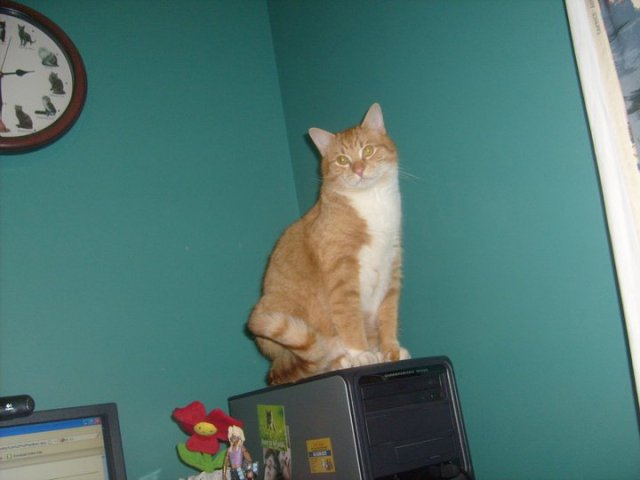 Identifying kittys breed
Question
Moggie
Hi I have a gorgeous ginger moggie I wa
Identifying kittys breed
Question
Moggie
Hi I have a gorgeous ginger moggie I wa
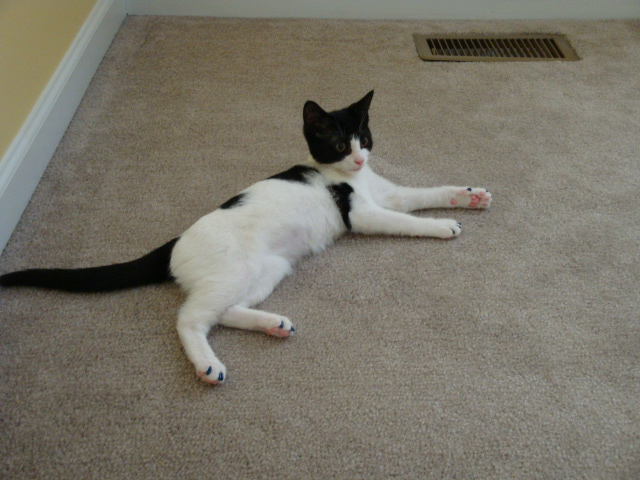 Cat training/Runs away whenever downstairs
Question
Kairi in her room
Hi there!
I recently
Cat training/Runs away whenever downstairs
Question
Kairi in her room
Hi there!
I recently
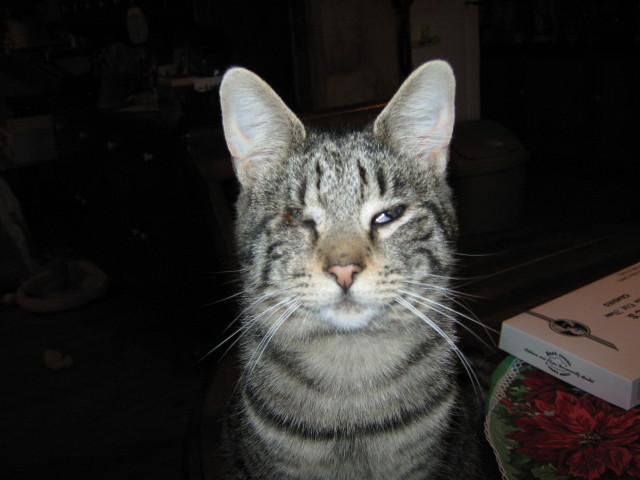 What breed is Jerome the Cat
Question
Jerome the Cat
Hi Karen.
Last summer on my da
What breed is Jerome the Cat
Question
Jerome the Cat
Hi Karen.
Last summer on my da
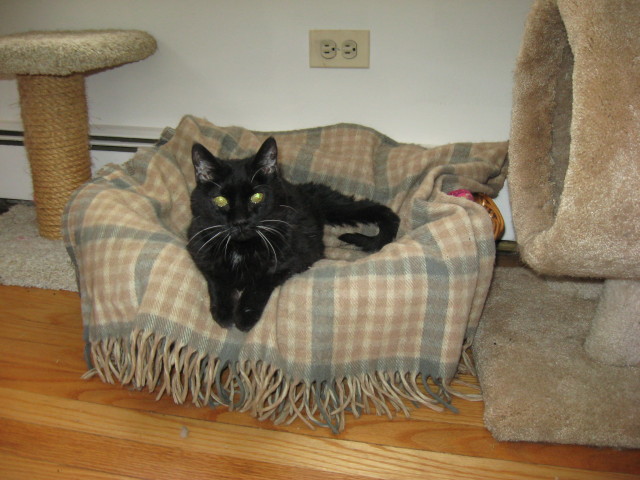 Senile Cat?
Question
Chloe
I have a cat thats about 18 1/2 years ol
Senile Cat?
Question
Chloe
I have a cat thats about 18 1/2 years ol
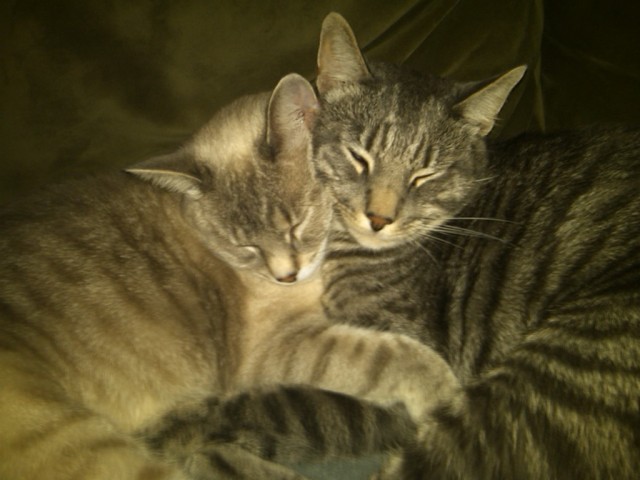 What breed/mix is my cat?
QuestionSugar and Oliver
QUESTION: Hi,
Im wond
What breed/mix is my cat?
QuestionSugar and Oliver
QUESTION: Hi,
Im wond